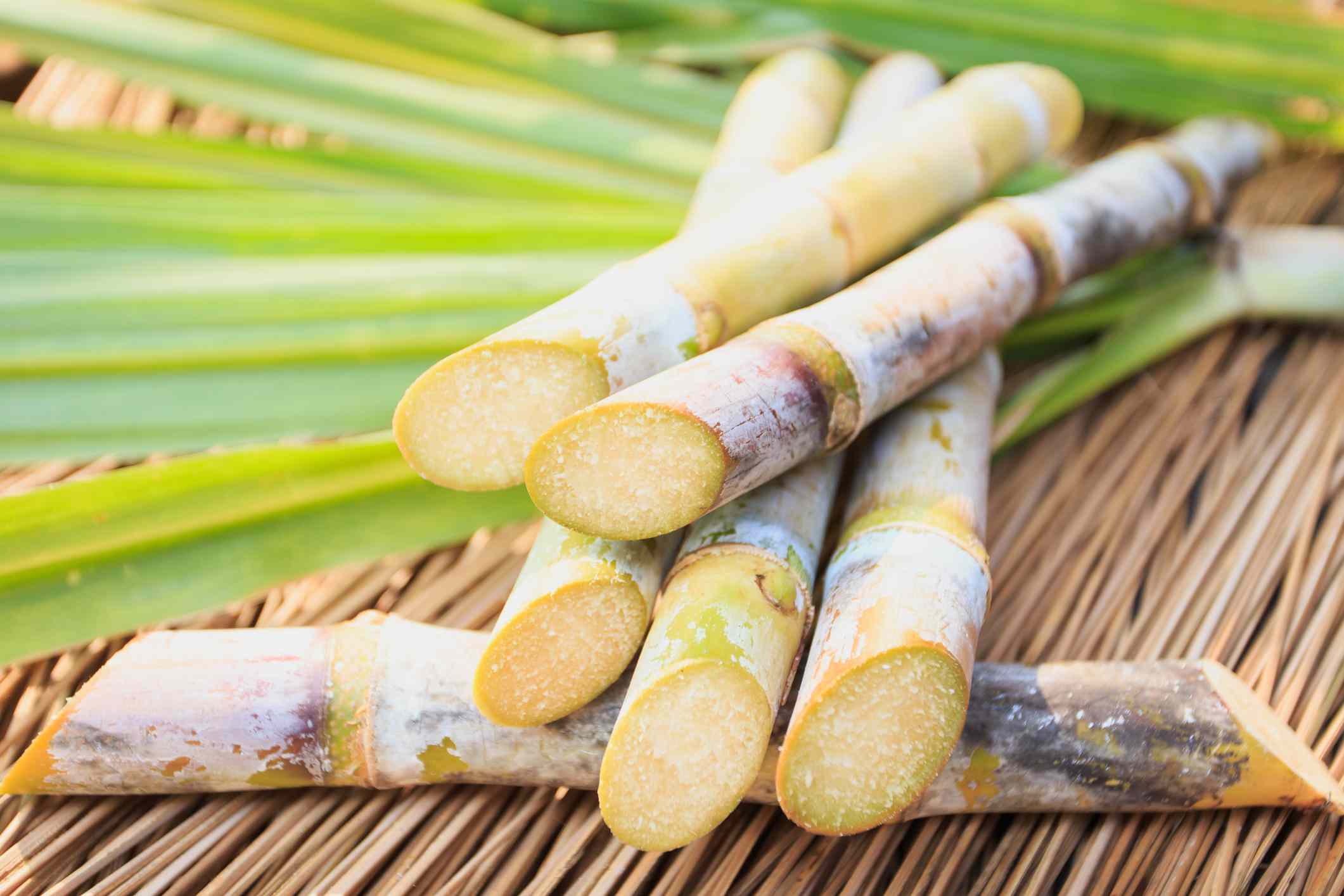A Detailed Review of the Wellness and Economic Ramifications of Cane Sugar Handling on Regional Areas
Cane sugar handling plays a crucial duty in forming the economic landscape of regional areas, using employment opportunities and boosting supplementary markets. The health implications connected with high sugar usage can not be ignored, as they contribute to increasing prices of weight problems and diabetic issues.
Financial Benefits of Cane Sugar Handling
Cane sugar handling provides significant financial benefits that expand past the immediate farming market. The growing and handling of sugarcane develop various work possibilities, from farming to production and distribution. This employment generation not just sustains local economies yet additionally fosters area advancement by offering secure revenue sources for family members.
Additionally, the sugar market boosts secondary businesses, consisting of transport, equipment supply, and packaging solutions (Cane Sugar Processing). As these sectors expand, they add to a more robust economic structure, boosting total area durability. The export capacity of processed walking cane sugar even more enhances financial benefits, placing areas as competitive players in international markets
Financial investment in modern processing facilities can cause increased productivity and effectiveness, therefore decreasing waste and optimizing source usage. This change not only profits the regional economy yet also supports sustainability initiatives by reducing environmental impacts.
Furthermore, the profits produced from walking cane sugar processing can be reinvested in local facilities, education, and medical care, promoting all natural community development. In general, the economic benefits of walking stick sugar handling are diverse, providing a foundation for sustaining prosperity in farming regions.
Health And Wellness Threats Connected With Sugar Usage
Extreme sugar consumption presents considerable health and wellness risks that call for severe attention. High intake of sugarcoated, specifically from processed foods and drinks, has actually been connected to various health problems. Among one of the most pressing concerns is obesity, as sugary diet regimens add to an enhanced caloric intake without offering necessary nutrients. This extra can lead to metabolic disorders, consisting of type 2 diabetes, which has come to be increasingly prevalent in both kids and grownups - Cane Sugar Processing.
Furthermore, high sugar usage is related to cardiovascular condition. Raised blood sugar degrees can lead to insulin resistance, a forerunner to different heart-related issues. Furthermore, sugar can have harmful impacts on oral health and wellness, causing dental caries and gum tissue condition, as microorganisms in the mouth prosper on sugar, generating acids that erode tooth enamel.
Moreover, emerging research recommends a possible link in between high sugar consumption and mental health and wellness problems, such as depression and stress and anxiety. As areas grapple with these health dangers, it comes to be crucial to advertise recognition and motivate healthier dietary selections. Resolving sugar intake is critical not just for individual wellness but also for the overall health of neighborhood communities, emphasizing the need for thorough public wellness strategies.
Environmental Impacts of Sugar Production
Regularly forgotten in discussions concerning sugar's effects is the considerable ecological impact of sugar production. The cultivation of sugarcane commonly necessitates substantial land use, leading to logging, loss of biodiversity, and disturbance of local ecological communities. The conversion of woodlands and marshes right into sugar plantations can result in habitat damage, harmful countless species and modifying ecological balance.
Additionally, sugar production is resource-intensive, consuming significant quantities of water for watering. This can cause depletion of regional water sources, adversely impacting both agricultural practices and community access to tidy water. In addition, the use of chemical plant foods and chemicals in sugarcane farming can add to dirt degradation and water air pollution, as runoff from these chemicals gets in close-by rivers and lakes, influencing water life and human health.
The environmental impact includes the processing stage, where power usage and waste generation further worsen environmental concerns. Air contamination from burning sugarcane fields, along with greenhouse gas discharges, add to climate adjustment. Because of this, the ecological ramifications of sugar production warrant major factor to consider, advising stakeholders to take on more sustainable techniques to reduce these damaging effects on neighborhood environments and neighborhoods.
Work Production and Community Advancement
The ecological challenges postured by sugar production are commonly counterbalanced by its capacity for financial advantages, particularly in job development and area development. The walking cane sugar industry functions as a substantial resource of work in many backwoods, offering tasks throughout different ability levels, from farming labor to processing and distribution functions. This work not just sustains individual households however additionally adds to the general financial vigor of local communities.
In addition, the facility of sugar processing facilities boosts supplementary organizations, such as transportation solutions, equipment supply, and maintenance suppliers. As these organizations thrive, they develop additional jobs and reinforce neighborhood economic climates. The earnings generated from the sugar market additionally brings about enhanced tax incomes, which can be reinvested Read More Here into social work such as education and learning, infrastructure, and health care development.
In addition, the sugar sector usually participates in community growth initiatives, such as sustaining local institutions and health programs, consequently improving the lifestyle for citizens. By promoting strong neighborhood ties and advertising economic growth, the cane sugar processing sector plays a vital duty in uplifting regional populaces, making it a crucial part of lasting advancement approaches in sugar-producing areas.
Harmonizing Health and Economic Growth
In browsing the intricacies of cane sugar handling, an essential obstacle depends on stabilizing wellness factors to consider with economic growth. The sugar sector significantly adds to regional economies by producing work, promoting relevant sectors, and enhancing tax profits. Nonetheless, the health ramifications connected with too much sugar intake can lead to chronic diseases such as weight problems, diabetes mellitus, and cardio discover this info here problems, which can worry public health and wellness systems and reduce labor force efficiency.

Furthermore, governing frameworks can play a pivotal function in assisting sector techniques towards more sustainable and health-conscious approaches. By fostering partnership between government bodies, wellness organizations, and the sugar industry, communities can navigate the dichotomy of health and economic growth, making sure that the advantages of walking cane sugar handling are equitably shared while focusing on public health and wellness.
Final Thought
To conclude, the handling of walking cane sugar presents both significant financial benefits and notable health dangers for regional neighborhoods. While it promotes task development and boosts local growth, the associated health and wellness problems, particularly pertaining to weight problems and diabetes mellitus, demand a cautious harmonizing act. By promoting accountable usage and investing in community education and learning and lasting techniques, it is possible to maximize economic advantages while reducing adverse wellness impacts, thereby making sure a healthier future for local populaces.
In addition, sugar can have harmful results on oral health, resulting in cavities and periodontal illness, as bacteria in the mouth flourish on sugar, creating acids that wear down tooth enamel.
Dealing with sugar intake is critical not just for private Click This Link health and wellness yet also for the total wellness of neighborhood neighborhoods, stressing the demand for detailed public wellness methods.
Regularly overlooked in conversations about sugar's effects is the significant ecological impact of sugar manufacturing. The wellness ramifications linked with excessive sugar consumption can lead to chronic diseases such as obesity, diabetes, and cardiovascular issues, which can worry public health and wellness systems and lessen workforce efficiency.

Comments on “Cane Sugar Processing: From Area to Table-- A Step-by-Step Guide”